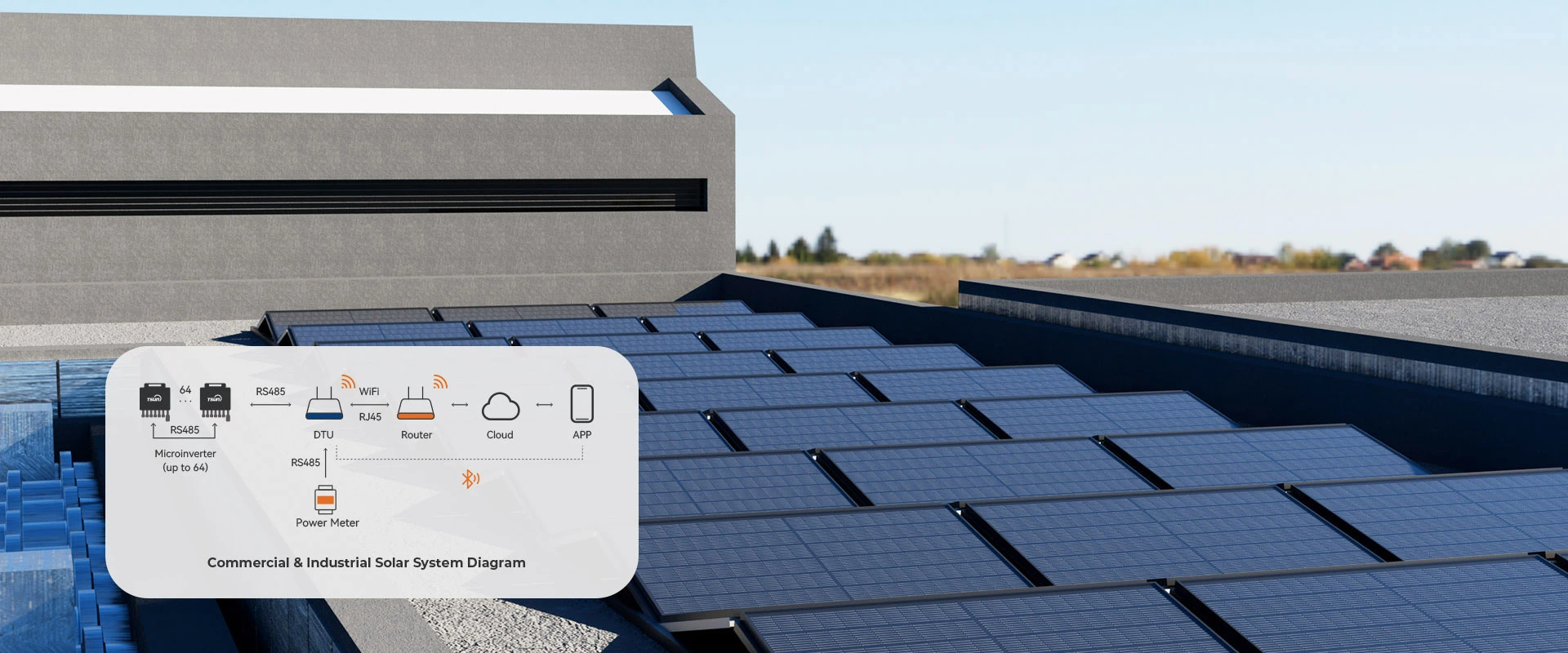Easy Solar Kit (with microinverter)
 LEARN DETAILS
LEARN DETAILS
 News
News
Table of contents
Harnessing the Power of Off-Grid Solar Microinverters
In the pursuit of sustainable energy solutions, off-grid solar systems have emerged as a key player in enabling energy independence and reducing reliance on conventional power sources. Among the essential components of these systems are microinverters, which have revolutionized the way solar energy is harnessed and utilized. This article explores the benefits and functionalities of off-grid solar microinverters, highlighting their role in promoting energy autonomy and sustainability.
What Are Microinverters?
Microinverters are small devices that convert direct current (DC) generated by solar panels into alternating current (AC), making it suitable for use in homes and businesses. Unlike traditional string inverters, which are typically centralized and manage multiple solar panels, microinverters are attached to each individual panel. This unique design allows for enhanced energy production, improved efficiency, and greater flexibility in system design.
Benefits of Off-Grid Solar Microinverters
1. Increased Energy Harvesting One of the primary advantages of using microinverters in off-grid solar systems is their ability to maximize energy harvesting. By optimizing the output of each solar panel independently, microinverters ensure that shading or dirt on one panel does not affect the performance of the others. This feature is particularly beneficial in off-grid applications, where every bit of energy counts.
2. Enhanced System Monitoring Off-grid solar microinverters come equipped with advanced monitoring capabilities, allowing users to track the performance of each panel in real-time. This granular visibility enables homeowners and businesses to identify issues quickly, ensuring that maintenance can be conducted efficiently. With remote monitoring options often available, users can access performance data from anywhere, enhancing overall system management.

3. Scalability and Flexibility Microinverters allow for easier scalability in off-grid solar systems. As energy needs grow or change, additional solar panels can be integrated into the system without the need for a complete redesign. This flexibility makes microinverters an attractive choice for anyone considering an off-grid solar solution.
4. Improved Reliability The distributed design of microinverters enhances the overall reliability of solar systems. In the event of a malfunction or failure in one microinverter, the rest of the system continues to operate unaffected. This redundancy minimizes downtime and ensures a consistent energy supply, which is especially crucial for off-grid installations where access to grid power is not available.
5. Simplified Installation Microinverters are generally easier to install than traditional inverters. Their compact size and modular nature simplify the mounting process on rooftops or ground-mounted systems. Many installers find microinverters to be a convenient option, as they require less wiring and fewer electrical connections, making the installation process quicker and more straightforward.
Challenges and Considerations
While off-grid solar microinverters offer numerous benefits, there are some considerations to keep in mind. They can be more expensive upfront compared to traditional string inverters, and since microinverters contain electronic components, their lifespan may vary. It's essential for users to weigh the initial investment against long-term savings and efficiency gains when deciding on an off-grid solar solution.
Conclusion
Off-grid solar microinverters represent a significant advancement in solar technology, empowering homeowners and businesses to harness renewable energy effectively. With their ability to increase energy production, provide detailed monitoring, and offer scalability, they have become an integral component of off-grid solar systems. As renewable energy continues to gain momentum, the adoption of microinverter technology will play a crucial role in driving the transition toward a more sustainable and energy-independent future. Embracing this technology not only contributes to individual energy autonomy but also supports the global endeavor for a greener planet.

